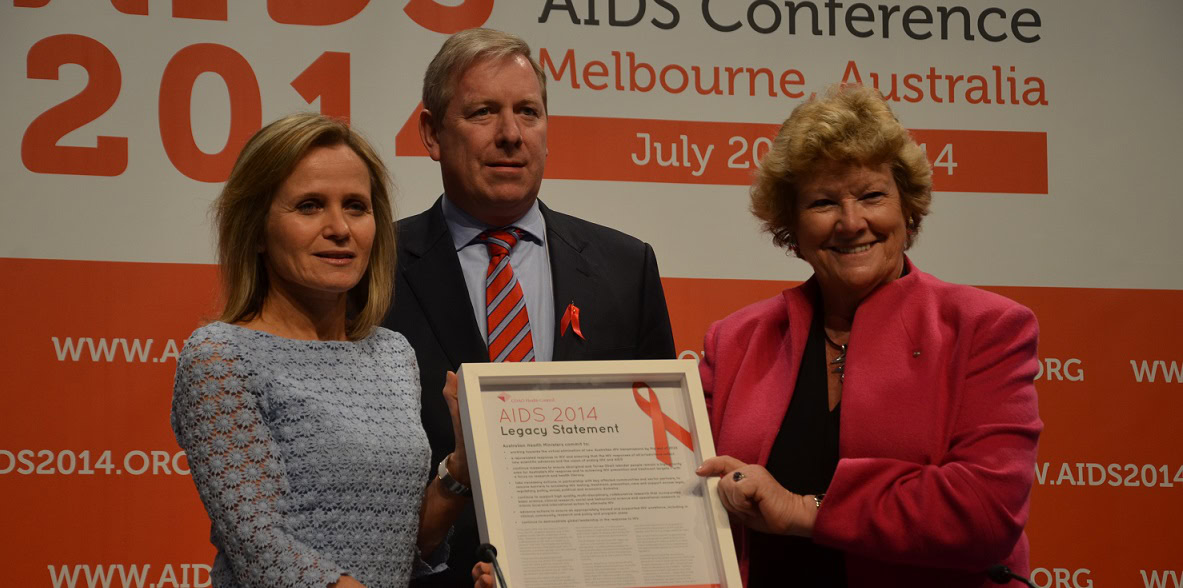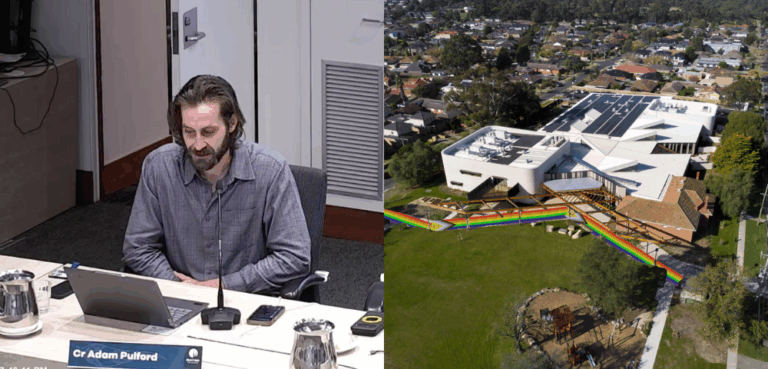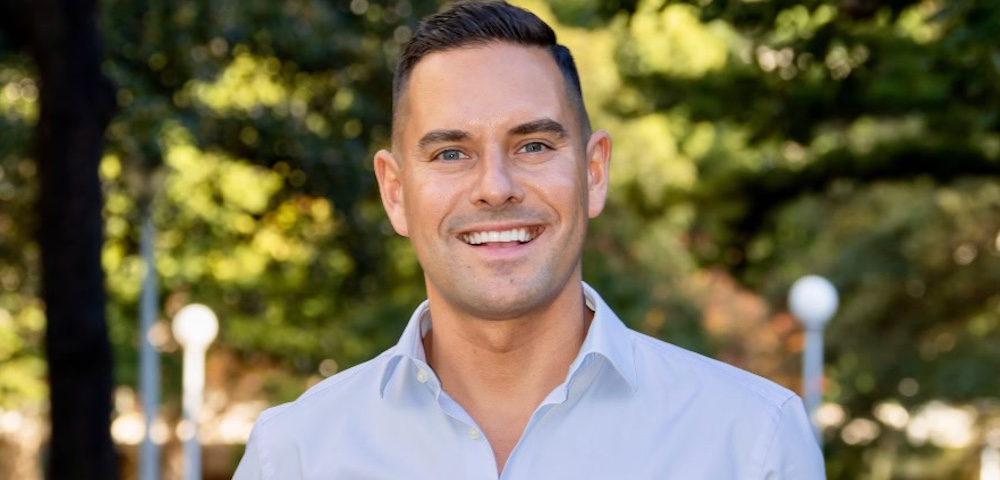
Australian Health Ministers sign on to ending new HIV transmissions by 2020

HEALTH ministers from every Australian state and territory have committed to an ambitious target of virtually eliminating all new HIV transmissions by the end of 2020 in an announcement today at the AIDS 2014 conference.
Health ministers from Victoria and New South Wales, David Davis and Jillian Skinner, made the joint declaration alongside the local co-chair of the conference and leading infectious diseases researcher Professor Sharon Lewin.
The AIDS 2014 Legacy Statement is an agreement made by all Australian health ministers after a meeting in June, prior to the release of Federal Health Minister Peter Dutton’s National HIV Strategy.
The wide-ranging and detailed plan aims to take “all necessary action” to actively remove barriers to testing, prevention, treatment and care, while working in conjunction with key affected communities including men who have sex with men.
The statement plans to address these issues in regulatory, policy and social arenas. One example given was the Victorian Government’s commitment to amend a section of the state’s Crimes Act specifically criminalising the intentional transmission of HIV, announced this morning.
The Legacy Statement was the outcome of a national round-table discussion between research, government, community and scientific leaders in February this year.
“This is a very exciting statement and I’m thrilled to be one of the signatories…and that everyone has come on board. It is a really important move forward and commits us to working towards the virtual elimination of new transmissions by 2020,” Skinner said.
“It commits us to a rejuvenated response to HIV by ensuring that all jurisdictions reflect new scientific advances and the vision of ending HIV and AIDS.”
Skinner also highlighted that Aboriginal and Torres Straight Islander people must remain a high priority and that action and partnership be taken with key communities.
“None of this would have been possible, on behalf of the ministers, without our partnering with the clinical world, research world and the community. I personally want to say thank you to all of those people involved,” she said.
“We will be the first country to have such ambitious targets that have been signed up to from every aspect of the response, and I think we should be incredibly proud of that.” Lewin said.
Reflecting on the tragedy of Malaysian Airlines flight MH17, Davis hoped AIDS 2014 would not let the loss felt across the conference, Australia and the world be in vain.
“Clearly this conference is a very important moment for Victoria, Australia and internationally … I think one of the important features of the conference is the opportunity to re-double our efforts to ensure that there is an outcome nationally and internationally that respects what occurred,” he said.
Addressing concerns that the Legacy Statement was far too ambitious a goal and that earlier commitments and targets made by health departments have not been completely realised, Davis said that he believed government bodies had demonstrated a better capacity to work together and deliver strategies.
“What gives me confidence is the capacity of government to work together, the capacity to set some clear objectives and [with regards to Victoria]…we’ve taken a number of key steps to improve testing availability. There are more resources in this area.” he argued.
Davis welcomed and also pointed to the recent Federal Government green-lighting of home HIV testing along with the priority actions outlined in the National HIV Strategy.
“We made this our commitment since December 2012 and we’ve already seen improvements. We have the tools, the improved tools about early testing and access to testing,” Skinner added, pointing to several initiatives in New South Wales, such as a its popular rapid testing van and others.
“The science has actually changed since [earlier] targets were set, and the science means testing has become much easier. There’s no doubt there’s a new commitment.” Lewin added.
In a joint statement, all health ministers agreed that after 30 years of HIV and AIDS, the problems that continue to affect communities all around the country are still some of the “greatest public health challenges of our time”.
“We have the tools and the science to achieve the goal [of the Legacy Statement]. If we do not act decisively now our transmission rates will continue to rise,” the statement read.
“Exciting developments in research, treatment and prevention have led many political, scientific and community leaders around the world to acknowledge the real possibility of achieving an ‘AIDS-free generation’, and eventually a cure.”











This must also mean funding support for needle syringe programs not cutting them back or replacing them with vending machines which don’t work. HIV/AIDS is low n Australia thanks to NSPs – we need to be able to say this and end the stigma.
What for once the government wants to do something useful they can actually unanimously agree on!
Long overdue indeed!
congratulations I hope you all keep to your word in this. Its clear that we need to stop this disease, Testing needs to be highlighted, if everyone does not get tested regularly 2020 will not be achieved. The stigma of the disease or how you got the disease or living with the disease needs to be eliminated , and finally making life easier for people living with the disease, at the moment people who have the disease cannot get support from the government, some cannot work or work shorter hours, but not get disability support or any thing like that they cannot get a healthcare card, yet they need medications a lot being on atleast three.$100 a month is a lot when you are just living on 400 a week. . simple if people do not take meds cause they can not afford them will end up congesting the hospital system please look at it